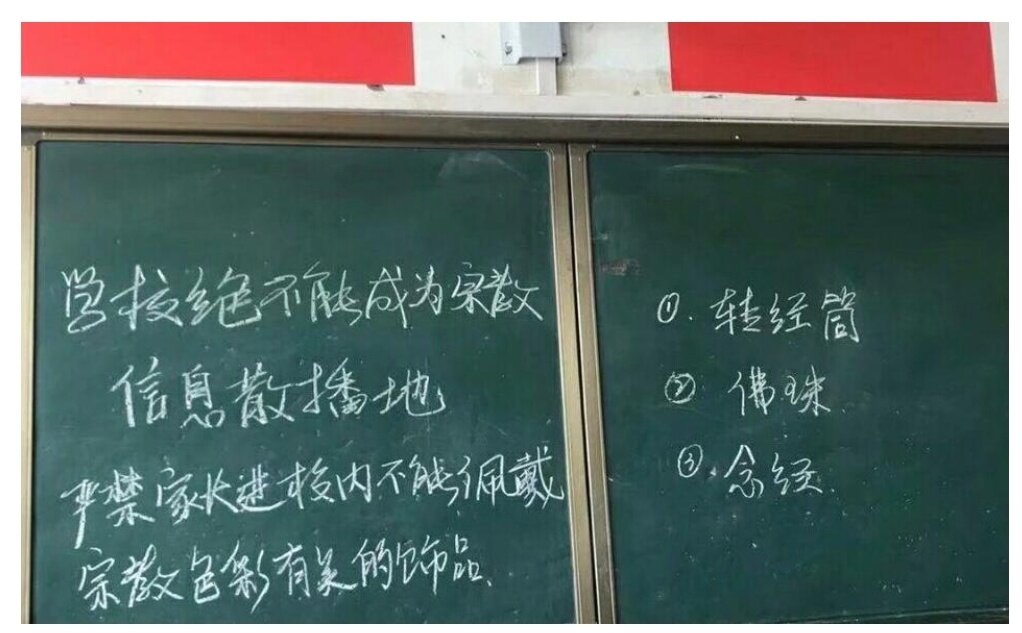New directive in central Tibet bans prayer wheels and rosaries from schools
Chinese authorities are overseeing a political drive in Tibet that heavily restricts the possession of everyday materials symbolic of Tibet’s religious and cultural identity.
In early April, Chinese authorities ordered Tibetan parents and guardians not to carry religious accessories like prayer wheels and rosaries when visiting their children. Chanting mantras and scriptures were forbidden as well in Tibetan schools of Sog (Ch:Suo) County, Nagchu City, central Tibet.
The announcement comes prior to Chinese Communist Party’s upcoming centenary anniversary on 1 July, for which a nation-wide campaign is being orchestrated on CCP history rewritten with Xi Jinping Thought as the framework. The announcement was written on blackboards and states:
Schools must not become a place for spreading religious information
School is to train socialist builders and successors
It is strictly forbidden for parents to enter the school with religious items:
a) prayer wheels
b) rosaries
c) chanting mantras
The restrictions are being imposed on junior and middle schools in Sog County and Tibetan families are forced to follow and demonstrate their allegiance to the CCP.
Hand-held prayer wheel is called Mani lag khor in Tibetan. Inside the copper cylinder contains a scroll of sacred Tibetan Buddhist texts beginning from the center, which is wrapped around a metal rod that is capped on the top with a pointed dome. Its other longer end is inserted into a wooden support for spinning. The material history of Mani lag khor is rich as is its significance for being banned. Much like rosaries, Mani lag khor’s ingenious design and usability has served lay Tibetan population as an important tangible support for meditation and reciting Tibetan Buddhist mantras and other prayers. Last year, in the same city of Nagchu, satellite imagery revealed Tibetan Buddhist mantra, Om mani padme hum, erased and replaced with the Chinese national flag.
China continues to redefine Tibetan identity by imposing restriction on almost every aspect of society, with particular emphasis on Tibetan monasteries. In order to reduce Tibetan Buddhism’s influence across Tibet, Chinese officials regularly patrol the monasteries, where monks, who are recognised as ‘troublemakers’, are forced to learn Chinese Mandarin, praise Xi Jingping 's vision of Socialist New Era and other Chinese policies and leaders.
Xi Jinping’s campaign of ‘Sinicisation of the religions in China’ is continually voiced by party leaders and cadres in Tibet to forcefully assimilate Tibetan Buddhism into Xi Jinping’s vision of what Tibet or religion should constitute. Repeated propaganda is issued against the wishes of the monks, demanding that they 'firmly uphold the leadership of the CCP, inherit and promote patriotism and be courageous to battle all separatist elements, in order to further protect the national reunification, ethnic unity and social stability'.
Blackboard-announcement prohibiting Tibetan regliious items in Sog county, central Tibet


